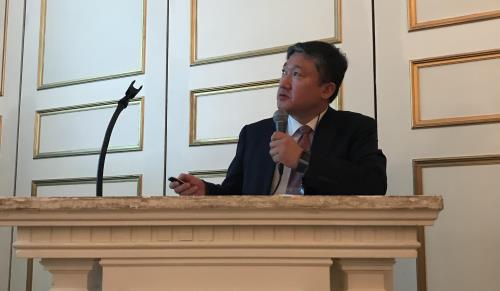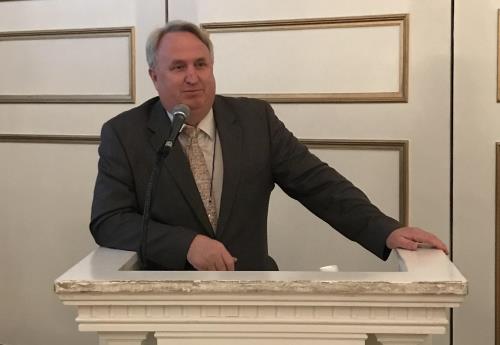The different medical training system for physicians and nurses between two Koreas could become a barrier to the future inter-Korean cooperation in the healthcare sector, experts said.
North Korea grants a medical license through an online medical education program. It takes only one or two years of education to become a nurse in the reclusive state. In the South, however, becoming a physician or a nurse is much more challenging.
Such difference makes it necessary for the South Korean healthcare professionals to reach a consensus on how the South should recognize the North’s medical training system, an expert said.

Professor Yoon Seok-jun of Korea University’s College of Medicine made these and other points during a speech titled the “Status of North Korea’s healthcare and cooperation plans,” at a conference by the Korean Academy of Health Policy and Management to celebrate the 30th anniversary of the society on Friday.
“There will be many challenges in designing the future of the inter-Korean healthcare system, but we have to be steady and systematic in doing so,” Yoon said. “The biggest problem we face now is to decide to what degree we should recognize North Korean physicians.”
In the process of cooperation and exchange, the South could consider recognizing a North Korean doctor who received medical training online, Yoon noted.
He took an example of Germany, which recognized the East German doctors’ medical license immediately after the reunification. “This was possible because West Germany had already understood the level of East German physicians in the process of exchange and cooperation,” he added.
At the conference, Yoon also presented a report titled “Plans for the establishment of the healthcare system for a reunified Korea,” commissioned by the Ministry of Unification in 2012.
In the report, Yoon said the inter-Korean healthcare system should be based on acceptations of political, economic, and social institutions of the two Koreas.
To pursue such a joint system, a unified Korea should utilize the advantages of the South Korean social insurance scheme and accept the tradition of the North Korean medical delivery system and the focus on primary healthcare, he said. Also, Seoul and Pyongyang should seek more cooperation and joint roles to secure public healthcare benefits, the professor added.
Yoon emphasized that the two Koreas should make a clear “control tower” to oversee the inter-Korean cooperation and exchange in the healthcare sector. “Numerous NGOs’ activities in so many different sectors could become confusing, rather than effective,” he said.
Kim Geon-hee, external affairs director at Korean Forum for Unification and Nursing, said the South should also see the difference in the education and training for nurses in the North. “The North Korean nursing education is one year or two years. Passing a graduation test makes it eligible to get a nursing license,” Kim said. “We have to think about how to amend the differences.”
Kim added that the South should first contact a North Korean group to discuss the issue.

Ihn Yo-han, director of the International Health Care Center at Yonsei Hospital, who has been steadily engaged in medical aid for North Korea, said the best preparation for a reunification is to combat diseases in the North. Supporting equipment and consumables for the North will naturally bring a healthcare advancement, he said.
His ideas for aiding the North’s health authorities included a distribution of universal and comprehensive vaccine programs and resource allocations, supply of basic serums, blood analyzers, X-rays, ultrasound devices, upgrades of devices at operation rooms, a stable power supply, and a support for North Korean doctors to perform new surgeries and technologies.
“The fatal disease among North Korean adults is active tuberculosis, and that among children and infants is an intestinal and bacterial disease caused by polluted water,” Ihn said. “Infectious and non-infectious diseases are the enemy of the entire human race, regardless of religion, politics, race, or any other cultural diversity. It is our task to fight them.”
Ihn, who has visited the North many times before, said the situation was better in Pyongyang than in remote areas. However, he saw patients in Pyongyang receiving a surgery without anesthesia, and some hospitals replaced saline bags with beer bottles.
“Even in this poor environment, North Korean doctors can do better if they can have equipment and consumables at hand,” Ihn stressed.
Ihn also mentioned that North Korea has an advanced level of Oriental medicine.
“In the healthcare sector, the North’s Oriental medicine is more advanced than that of the South. For the advancement of Oriental medicine, the North focuses on science rather than Donguibogam (an old Korean textbook for Oriental medicine). South Korean Oriental medicine practitioners will learn a lot if they visit the North,” he said.

